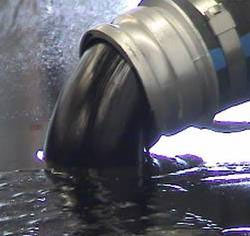
…Industry experts react to looming recession
Following the continued spread of coronavirus (COVID-19) and its impacts on the global commodity markets, there seems to be a heightened pressure on the nation’s budget as the price of Bonny Light declines to $29 per barrel. This is coming a day after Saudi Arabia flooded the international market with crude oil at prices as low as $25 per barrel.
It was gathered that the move was specifically targeted to major refiners of Russian oil in Europe and Asia, in an escalation of its fight with Moscow for market share.
Arab Light and Arab Medium barrels were offered at selling price of $25-28 per barrel on CIF Rotterdam basis.
Meanwhile, the new drop in Bonny Light to $29.42, shows a difference of $2.31 against what was recorded last Friday. Also, Brent declined by 12 percent to $29.74 per barrel, its lowest level since February 2016.
Also, U.S. West Texas Intermediate crude dropped $1.66, or 5.2 percent, to trade at $30.07 per barrel. This development pose significant threat to Nigeria’s 2020 Budget oil price benchmark of $57 per barrel, indicating that total revenue and size of the budget is no longer realistic.
Consequently, a Federal Government committee to ultimately recommend an appropriate size, down from the current N10.59 trillion has started work.
Similarly, “there are fears of global recession as world oil demand is expected to shrink by 910,000 barrels per day, bpd, in the first quarter of 2020, following the spread of coronavirus which has diminished economic activities and travels around the world”, the United States Energy Information Administration, EIA, said.
The immediate past president of Nigerian Association for Energy Economics, Professor Wumi Iledare, expressed worry over country’s budget and called for review of the budget.
He also stated: “It is not unexpected for the drop in price because of drastic shift downward in demand due to lower economic growth projections in Asia subsequent to the coronavirus-19 in China. Cast your mind back to 2008. Something has to be done with supply to reverse the trend in the short run! OPEC is mindful of the unfolding price trend, and in conjunction with non OPEC producers, OPEC is working at reducing marketed production (global supply).
“Certainly because of the excessive dependence on oil for revenue, fulfilling budget estimates in Nigeria will be straining. And because government drives the economy, the inability of the government to fund its budget has implications on the economy. Government debt is already and additional borrowing may lead to rise in cost of capital.
“Options available are to review the budget, cut the unnecessary padding, prioritize spending with less borrowing and hope for a rising oil price in not too distant future and resurgence of the private sector to dry the economy. There is a lesson to be learnt, economic populism is not sustainable in a petroleum dependent economy, like Nigeria.”
In a statement EIA’s Administrator, Linda Capuano, said, “The EIA cut its world oil demand growth forecast for the year by 660,000 bpd, now seeing demand rising by 370,000 bpd to 101.2 million bpd. The Organization of the Petroleum Exporting Countries (OPEC) also slashed its forecasts for demand growth and warned of further downward revisions.
“The bulk of the demand drop comes from China, where the coronavirus outbreak has taken a heavy toll on the economy and oil consumption is expected to fall by 480,000 bpd. The EIA expects to see United States demand fall by 350,000 bpd in the first quarter, exceeding the previous estimated decline of 260,000 bpd.
“Overall U.S. demand for the year was expected to rise 60,000 bpd to 20.52 million bpd in 2020, a slight downgrade in its forecast. U.S. crude oil production is expected to rise by 760,000 barrels per day (bpd) in 2020 to 12.99 million bpd.”
The agency added, “We expect that lower forecast oil prices in mid-2020 will reduce U.S. drilling activity in late 2020 and in early 2021.The record pace of U.S. output growth has been slowing as companies pull back on spending on new drilling.”
Consequently, with the steep fall in crude oil prices, Nigeria and other members of the OPEC are bleeding over $500 million a day in lost revenue.
Saudi Arabia launched an oil price war last Saturday following the failure of OPEC and its 10 allies, and non-OPEC producers led by Russia, to broker a deal last week.
For the most part, oil is a top income source for OPEC members and such a dramatic fall in prices will put strain on their economies, some of which are already on the brink, according to Reuters.
Brent crude, the international benchmark, was down by as much as 31 percent to $31.02 on Monday, their lowest since mid-February 2016.
At that low, prices were down nearly $20 a barrel from a high before the meeting of OPEC and its allies on March 6. This means that in total, and based on their average February production, OPEC members lost more than $500m in revenue, according to Reuters’ calculations. The losses are a lot more pronounced when compared with the high of $71.75 a barrel that Brent hit in January 2020.
Kindly contact us @ Naijalivetv@gmail.com
Call or Whatsapp: 07035262029, 07016666694, 08129340000










